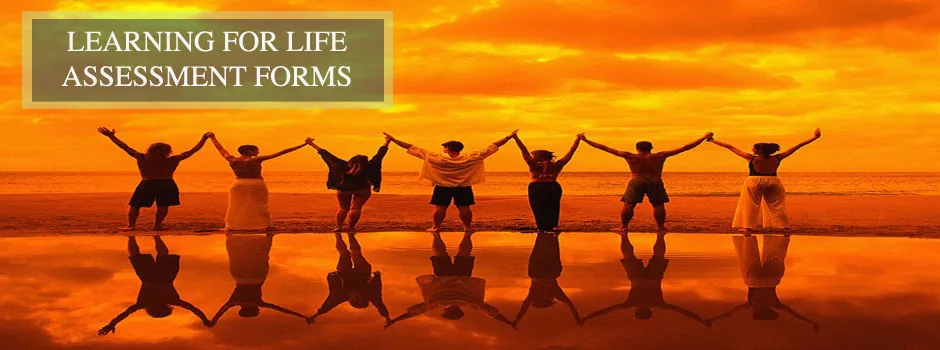
Assessment Forms
This pages is about (and includes) the recommended assessment forms for use as part of the Evaluation and Evolution process within the One Community Education for Life program. The assessment forms are designed to provide a replicable and easily adaptable template for collaborative growth that is applicable to all ages and almost any learning environment.
We discuss the details of this component with the following sections:
- Assessment Form Overview
- Why Open Source these Forms
- Ways to Contribute
- Significant Contributors to this Component
- Assessment Form Details
- Questions for Adding to/Customizing the Forms
- Summary
- FAQ
- Resources
RELATED PAGES
EDUCATION OVERVIEW | HOW TO USE THIS PROGRAM | OUR OPEN SOURCE PURPOSE
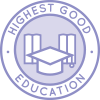
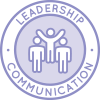
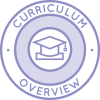
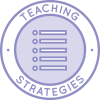
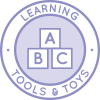
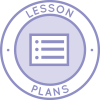
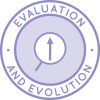
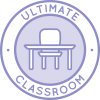
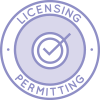
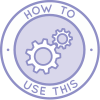
ASSESSMENT FORM OVERVIEW
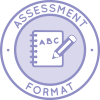 The assessment forms are designed to provide an adaptable template for Learner-guided evaluations that support collaborative growth. They are applicable to all ages and almost any learning environment. They are Google Doc-based so they are easily copyable/transferable/editable and transparent, and designed to allow for input and participation from a person’s entire learning team (family, friends, teachers, mentors, etc.).
The assessment forms are designed to provide an adaptable template for Learner-guided evaluations that support collaborative growth. They are applicable to all ages and almost any learning environment. They are Google Doc-based so they are easily copyable/transferable/editable and transparent, and designed to allow for input and participation from a person’s entire learning team (family, friends, teachers, mentors, etc.).
Adding/removing module components individualizes each person’s form and helps further individualize the learning path too. They are divided into the following learning groups: Pre-K/Elementary, Intermediate/Secondary, and Post Secondary (trade school, etc.). This page includes examples and downloadable forms for each learning group to assess, evaluate, and provide:
- Work samples that exhibit that learning achievement meets objective benchmarks
- Everything necessary for transfer into the public school system or specific work environment
- Quarterly report cards for personal growth and use, credit transfer, and/or resume inclusion

WHY OPEN SOURCE THE FORMS
 One Community is about creating positive and permanent global transformation through open source and self-replicating teacher/demonstration hubs. The complete Evaluation and Evolution process is our structure for assessing, maintaining, and improving the educational process for all involved.
One Community is about creating positive and permanent global transformation through open source and self-replicating teacher/demonstration hubs. The complete Evaluation and Evolution process is our structure for assessing, maintaining, and improving the educational process for all involved.
The format described here was initially conceived for use in the Education for Life component of One Community. We then developed it for use in any environment where there are Educators and Learners, Facilitators and Staff, Managers and Teams, etc. Our hope in open sourcing it is to provide a replicable tool that demonstrates and teaches the benefits of two-directional feedback and collaborative learning.
Sharing and helping to support and spread ideas like this is directly in alignment with our Purpose and Mission, our Global-transformation Pledge, and Highest Good philosophy for open source creation, sharing, and making a difference in the world.
WAYS TO CONTRIBUTE TO EVOLVING THIS EDUCATION PROGRAM WITH US
SUGGESTIONS | CONSULTING | MEMBERSHIP | OTHER OPTIONS
SIGNIFICANT CONTRIBUTORS TO THIS COMPONENT
Ellen Ross Kaspi: Progressive Educator and Mind/Body Modality Specialist
Jessica Wienke: Organizational and Leadership Development Consultant
Sangam Stancza: Ph.D. and P.E.
Stephanie VanderKallen: Mental Health Professional and Teacher
ASSESSMENT FORM DETAILS
 As stated above, the purpose of this evaluation form is to engage learners in their own life coaching and human evolution process. It allows the Learner/Team Member to enroll in charting their own path and shaping their own educational experiences. It also allows the Teacher/Facilitator to get valuable feedback for their own growth and improvment process.
As stated above, the purpose of this evaluation form is to engage learners in their own life coaching and human evolution process. It allows the Learner/Team Member to enroll in charting their own path and shaping their own educational experiences. It also allows the Teacher/Facilitator to get valuable feedback for their own growth and improvment process.
These evaluation forms serve as an engine for identifying, pursuing, and evolving passions and raw talents through interdisciplinary, inquiry-based learning. The form and questions on it are selected by the Facilitator/Educator, it is then filled out by the Learner prior to the bidirectional Learner-guided evaluation. This creates opportunities for the Learner and the Teacher to ask personalized questions, give each other feedback, and explore strategies for enhancing each other’s development. It also provides a means to identify and successfully engage all areas of a person’s life that they want to develop.
The forms are designed for Learners of all ages, Teachers in any capacity, Managers and/or Facilitators in any capacity, and interns, understudies, and/or volunteers/employees in any environment. Through the use of these forms and the assessment format, everyone is accountable and the entire educational experience is enhanced. Most importantly, if you are doing it right, it is engaging/fun for everyone.
With all this in mind, we discuss the details of how to use and customize these forms with the following sections:
- Steps for Using the Assessment Forms
- Downloadable/Replicable Forms
- Modifications/Additions for Other Purposes
- Questions for Adding to/Customizing the Forms

STEPS FOR USING THE ASSESSMENT FORMS
The primary goal of the complete Evaluation and Evolution process is to help the Learner assess their progress, clarify goals and desires, give and get feedback on their growth process, and collaboratively create a plan for success. The forms help gather and share the details of the Learner’s perspectives and thoughts about these areas so the Educator/Facilitator can efficiently assist them in their planning, education, and growth process. If used correctly, the forms are also an excellent tool for helping the Educator/Facilitator to grow and improve their teaching style and effectiveness.
When using the forms, the form selection and customization is completed by the Educator/Facilitator, then the form is filled out by the Learner, reviewed by the Educator/Facilitator, and discussed face-to-face in a two-directional Learner-guided evaluation. Customization is accomplished by substituting appropriate alternate-question options from the lists below or by creating their own. This process happens with each use of the forms so the evaluation process is always relevant to the Learner’s evolving education, goals, and aspirations.
Here are the steps for using the forms for the first time:
- Select the form appropriate for your situation: Do this from the Downloadable/Replicable Forms section of this page.
- Make a copy of the form for your own use: In the top left corner of your browser, choose “File” and then “Make a copy…” This will make an editable copy of the Google Document that you can then modify, share, etc.
- Familiarize yourself with the form: Read through the template chosen to familiarize yourself with the questions already there.
- Individualize the form: Thinking about what you know about the Learner’s strengths and opportunities for growth, and their performance over the last learning session, individualize the form by checking the boxes (☘) by existing questions you think are best for the Learner and substituting any questions you think would be helpful to exchange for existing questions. Do this using your own questions of the ones suggested in the Questions for Adding to/Customizing the Forms section below.
- Share with the Learner and/or their parents/guardian: The final step is to share the form with the Learner for the Learner to complete before coming to the meeting. If agreed as helpful, the Learner can do this with the help from parents/guardians or the other members of their Collaborative Team.
- Conduct a two-directional review as detailed on the Learner-guided evaluations page.
The process is the same if you’ve used these forms before, the only difference would be the inclusion of reviewing your Learner’s records and previous meeting notes prior to the individualization step.

DOWNLOADABLE/REPLICABLE FORMS
 The recommended (adaptable) assessment forms for use with the Evaluation and Evolution process are Google Doc-based so they are easily copyable/transferable/editable and transparent. Adding/removing questions and/or module components individualizes each person’s form and helps further individualize the learning path too. The forms are also designed to allow for input and participation from a person’s entire learning team (family, friends, teachers, mentors, etc.). The forms can be adapted to be used for:
The recommended (adaptable) assessment forms for use with the Evaluation and Evolution process are Google Doc-based so they are easily copyable/transferable/editable and transparent. Adding/removing questions and/or module components individualizes each person’s form and helps further individualize the learning path too. The forms are also designed to allow for input and participation from a person’s entire learning team (family, friends, teachers, mentors, etc.). The forms can be adapted to be used for:
- Work samples that exhibit that learning achievement meets objective benchmarks
- Everything necessary for transfer into the public school system or specific work environment
- Quarterly report cards for personal growth and use, credit transfer, and/or resume inclusion
Here are the Google Docs in formats for evaluation for each age:
- General Use
- Pre-K/Elementary (up to 2nd Grade)
- Intermediate/Secondary (2nd to 9th Grade)
- High School and Post Secondary (9th Grade +, trade school, etc.)

MODIFICATIONS/ADDITIONS FOR OTHER PURPOSES
The above forms can also be easily adapted and used for additional role types such as Student Mentors, Assistants, Internships, Work Study, etc. For these purposes, you may wish to add the following sections and/or details:
ADDITIONAL VOLUNTEER EXPERIENCE
- Pictures of them during their volunteer time (In the environment)
- After each section they would submit a summary of what they learned and a reflection on the experience
- Letters of reference
WORK EXPERIENCE/APPRENTICESHIPS
- Pictures of them during their work time (In the environment)
- Assessment of skills, certifications earned, letters of recommendation
- After each “job” they would submit a summary of what they learned and a reflection on the experience as a contribution to their resume ” built in GDocs
LIFE EXPERIENCE SECTION
- Helping out at home (aspects worked into social sciences
- At home family projects, extracurricular activities: beach cleanup, park cleanup, etc.
- Reflection on life experiences like above
EXTRA CURRICULAR
- Sports, dance, art, photography, etc.
- Reflection on these experiences as above
QUESTIONS FOR ADDING TO FORMS
 This section of this page is essential for individualizing the evaluation forms and Learner-guided evaluation process. They are only needed though if individualization is desired. For general use, the forms can be used as they are. To individualize them, replace any of the questions on the form with ones from below if you feel the ones from below are better suited for the specific goals, strengths, and opportunities for improvement the Learner is focused on. When opportunities/strategies/approaches are identified by the Learner for improving the Learner’s experience, offer to help them remember and be accountable to applying the strategies they’ve identified.
This section of this page is essential for individualizing the evaluation forms and Learner-guided evaluation process. They are only needed though if individualization is desired. For general use, the forms can be used as they are. To individualize them, replace any of the questions on the form with ones from below if you feel the ones from below are better suited for the specific goals, strengths, and opportunities for improvement the Learner is focused on. When opportunities/strategies/approaches are identified by the Learner for improving the Learner’s experience, offer to help them remember and be accountable to applying the strategies they’ve identified.

GENERAL QUESTIONS
These questions are applicable to all ages/experience levels and can be used as such:
- What makes you happy?
- What are your values?
- What are your life goals, interests, passions, desires?
- Pick an area of your life, what would you like to accomplish? What’s the greatest outcome you can imagine for that area?
- Who is someone who has already achieved what you want to achieve? What are at least 3 strategies you think were successful for them that you may also find helpful for yourself?
- How can we make this next term more fun for everyone involved?
- When you learn, what do you like to do?
- What would you like most from your educational program? If you had to guess or make something up as your favorite activity, what would you choose?
- Of the different subject areas, which ones interest you most and why?
- Outside your area of passion, where would you like to see growth?
- What do you like to do most when you go outside to play? What is your favorite activity and why?
- If you were to pick one area of life you’d like to improve, what would it be? If you had to make something up (it doesn’t have to be right), what’s the first thing that comes to mind?
- Describe at least 3 new discoveries or new developments you consider significant since our last meeting.
QUESTIONS FOR AGES 4-7
These questions are applicable to an average age/experience level of a 4-7 year old and can be used as such:
- What activity did you enjoy the least this quarter*? What would make it more enjoyable?
- What was the activity you felt was the most fun during the last quarter? How do you think you could you apply that to other areas for the next quarter?
- How would you describe one positive social interaction this quarter and what could you do to practice/create that same social experience everyday* in the next quarter?
- What would be an action* you could do everyday* to assure even more that your body, mind, and spirit feel positive and comfortable?
- What would be a question* that you could ask everyday* that will help support the most positive and joyful feelings you have throughout the day and apply them to the areas that you want to improve the most?
- Name some things* you think you could do each day* to make learning even more fun? If you don’t know, but had to guess, what would they be?
Note: An “*” means you could substitute a different time, activity, etc. for that word if you feel there is a more appropriate one.
QUESTIONS FOR GRADES 2-4
These questions are applicable an average age/experience level of a person in grades 2-4 and can be used as such:
- What would be one thing everyday* that you could do to increase your energy and happiness to achieve your learning* goals even better each week?
- What would be an action* you could do everyday* to increase your comfort of sharing/practice of sharing* openness and honesty?
- In what situation do you feel your are best able to express yourself? How can you use this in everyday situations when you aren’t sure what to say or do?
- What are the strongest or most empowering feelings you are experiencing and how could you use those in a positive way to improve your daily educational experience?
- What is one way you could help others each week* that would also help you?
- What is a quality/strategy you admire in someone else, and what is one way you could practice this quality/strategy daily in your own life?
- What would you say is your strongest area of education and what are 3+ strategies that support this strength and how could you apply this in the area of your life you feel you could use the most growth?
- What’s 1 to 5 values you would like to focus on this quarter and what could you do daily to support that?
Note: An “*” means you could substitute a different time, activity, etc. for that word if you feel there is a more appropriate one.
QUESTIONS FOR GRADES 4-6
These questions are applicable to an average age/experience level of a person in grades 4-6 and can be used as such:
- Choose a learning experience* that you like to do daily*? Name one way that you could use this learning experience to expand your current learning approach?
- What is a daily activity* that you could do to bring forth your unique frequency of love* and or expression*, and or kindness* and infuse it into the hearts of everyone you meet?
- What are 5 areas you felt really confident about in this past quarter and what is a daily gratitude practice you could incorporate to apply these in more diverse areas of your life?
- What are some ways you could use your educational strengths to improve your social skills and vice versa?
- What are some positive ways you can increase your self love and confidence no matter what is going on around you?
- What are some of your strength areas that you could apply to improve the classroom environment for everyone else and yourself?
- What are 1 to 5 values you would like to focus on this quarter and what could you do daily to better apply them?
- What are 3 areas you and/or your peers see you as a leader in and how could you use this to help others and yourself even more?
Note: An “*” means you could substitute a different time, activity, etc. for that word if you feel there is a more appropriate one.
QUESTIONS FOR GRADES 7-8
These questions are applicable to an average age/experience level of a person in grades 7 or 8 and can be used as such:
- What is an emotional resource that you like to have more of in your life and what is a daily* activity that you could do to strengthen/develop that emotional resource in yourself?
- What’s a strength/resource that you have or have access to that you could use daily* to help others?
- What can you do to reflect, apply, and clarify your personal values?
- Reflecting on your values, what’s one thing you could do everyday to clarify the direction you want to go and expand future possibilities for yourself?
- Reflecting on your daily/educational/social/relationship routines and habits, what would be some areas that you could add/remove to make it more effective to accomplish your values and support your goals?
- Exploring planning and structuring options, what would be one or more that you could apply daily to create dramatic improvement in your life?
Note: An “*” means you could substitute a different time, activity, etc. for that word if you feel there is a more appropriate one.
QUESTIONS FOR GRADES 9 AND ABOVE / ADULTS
These questions are applicable to an average age/experience level of a person in grades 9+ and/or adults and can be used as such:
- What’s an area of your emotional/social/psychological development that you would like to improve and what is a daily* action that you could take to achieve those improvement goals?
- What’s an area within your work/learning environment that you would like to improve and what is a daily* action that you could take to achieve those improvement goals?
- What’s one resource you admire in others that you would like to integrate into your own life, and what is a weekly activity that could help you develop that resource within yourself?
- What is the area you feel you need the most improvement on and what are the actions/strategies would you like to integrate/implement on a regular basis to improve that?
- Thinking of your future, what is one thing you could do this quarter to help you become clear in your direction and goals?
Note: An “*” means you could substitute a different time, activity, etc. for that word if you feel there is a more appropriate one.
SUMMARY
 The assessment forms are designed to provide an adaptable template for Learner-guided evaluations that support collaborative growth. They are applicable to all ages and almost any learning environment. They are Google Doc-based so they are easily copyable/transferable/editable and transparent, and designed to allow for input and participation from a person’s entire learning team (family, friends, teachers, mentors, etc.). Sharing and helping to support and spread ideas like this is directly in alignment with our Purpose and Mission, our Global-transformation Pledge, and Highest Good philosophy for open source creation, sharing, and making a difference in the world.
The assessment forms are designed to provide an adaptable template for Learner-guided evaluations that support collaborative growth. They are applicable to all ages and almost any learning environment. They are Google Doc-based so they are easily copyable/transferable/editable and transparent, and designed to allow for input and participation from a person’s entire learning team (family, friends, teachers, mentors, etc.). Sharing and helping to support and spread ideas like this is directly in alignment with our Purpose and Mission, our Global-transformation Pledge, and Highest Good philosophy for open source creation, sharing, and making a difference in the world.
FREQUENTLY ANSWERED QUESTIONS
Q: Are all aspects of this Evaluation and Evolution component necessary?
We consider all aspects listed above as important, but how a person or organization chooses to use them is up to that individual or group. To maximize the flexibility and application options, all components are designed to be usable in combinations, as part of the complete One Community Education for Life program, or as stand-alone components.
Q: Above you say, “if you are doing it right, it is fun for everyone.” How do you make it fun when it seems disciplinary action is in order?
People’s and organizational approaches to discipline are diverse. If disciplinary action is something you or your organization has decided is necessary, our suggestion is to still maintain a positive and Learner-focused approach. This would mean focusing on the Learner’s goals, how their behavior could be changed to help them better achieve their goals, and then guiding the Learner to come up with the best approach for moving forward and any consequences associated with not living up to this self-created path for progress.
Q: What if I have my own evaluation system that I like better, can I use that instead?
Of course! All aspects of the Education for Life program are designed for use in any educational environment and with or without inclusion of any other aspect of the program.
OTHER RESOURCES
We're building a resource section. Click here if you have a suggestion or resource for this page.
OPEN SOURCE SUBJECT RESOURCES (click icons for complete pages)
OPEN SOURCE CURRICULUM OUTLINES (click image for summaries and links to complete pages)
CARE
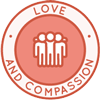
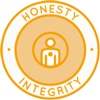
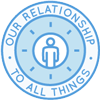
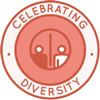
SHARE
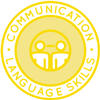
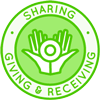

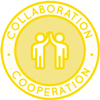
PLAY
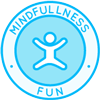
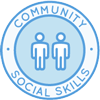
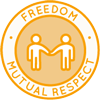
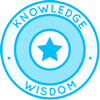
OPEN SOURCE TEACHING METHODOLOGY SUMMARIES
Montessori | Waldorf | Orff | Reggio | Multi-Intelligence | Bloom's Taxonomy | Study Tech | I-WE
INDEX OF ALL THE ONE COMMUNITY OPEN SOURCE LESSON PLANS
THE WORLD'S LARGEST ONLINE FREE EDUCATION RESOURCE ARCHIVE
RELATED CONTENT AND OTHER RELATED RESOURCES
We're building this resource section. Click here if you have a suggestion or resource for this page.
 One Community
One Community


